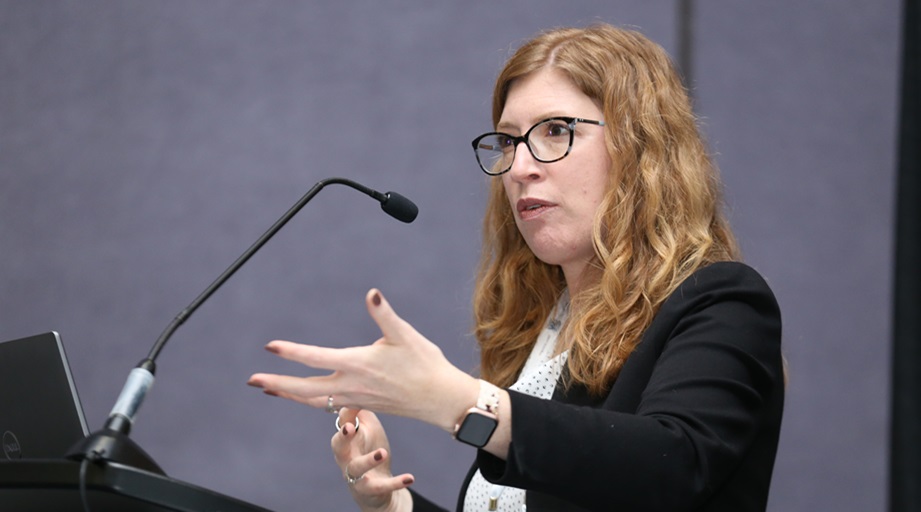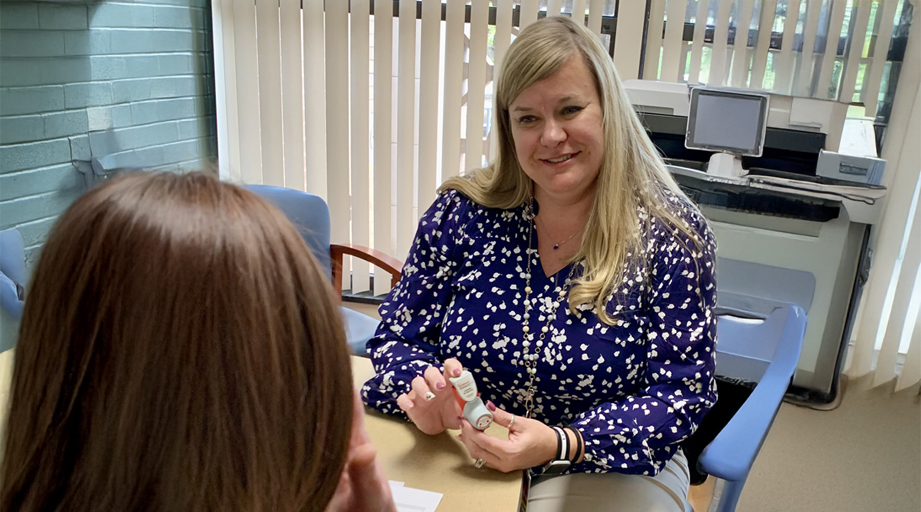
ChatGPT can do practically anything you ask it to, from planning your next vacation to writing thank-you notes to whipping up code.
It can also recommend medications you should take based on your genetic profile — a phenomenon that is “coming at pharmacists quickly,” according to Marylyn D. Ritchie, director of the Institute for Biomedical Informatics at the University of Pennsylvania.
In Spotlights on Science: AI and Direct-to-Consumer Genetic Testing: The Good, the Bad, and the Ugly, presented Dec. 6 at the Midyear Clinical Meeting & Exhibition, Ritchie shared the risks and benefits of using AI to make healthcare decisions, thanks to the proliferation of ChatGPT and other generative artificial intelligence (AI) tools.
“This is something patients are going to start to do, if not already, and it’s something for all providers to think about,” she said.
Generative AI has taken the world by storm in the past year. ChatGPT can help people be more efficient with their time — by replacing notetaking from meetings or conducting data analysis, for example. ChatGPT may be the most famous, but it’s one of dozens of large language models in use today.
“There is so much more happening that most of us that aren’t in the AI space … just have no idea about,” Ritchie said.
But, she warned, the media is also rife with “horror stories” of ChatGPT giving outdated, dangerous, and outright false medical advice. Its recommendations lack personalization and context, and the dataset it works from is a couple of years old.
Ritchie acknowledged that ChatGPT is getting better with healthcare recommendations because it’s able to learn over time. Still, the idea of a patient listening to ChatGPT’s advice over calling their provider “blows my mind,” Ritchie admitted.
Among generative AI’s most interesting and pressing implications for healthcare, she said, is the intersection with direct-to-consumer (DTC) genetic testing. Kits from companies like 23andMe and AncestryDNA have been on the market for over a decade, and they are readily available on Amazon.com. Consumers can send off a cheek swab and, in return, receive detailed information about their family tree, their predisposition to health conditions, and how their body metabolizes and reacts to certain medications.
The latter is the essence of pharmacogenomics, which Ritchie defined as “getting the right medicine to the right patient in the right dose at the right time.” This area of precision medicine can help reduce medication waste, avoid adverse effects, and ensure each patient benefits from tailored therapy.
As an example, she explained how someone with a CYP2C19*2 variant is known to metabolize the anticoagulant clopidogrel inefficiently. Before going for something like a stent procedure, they may want to ask their doctor about taking an alternative like prasugrel or ticagrelor.
But Ritchie said that instead of getting this advice from their healthcare team, that patient may turn to “Dr. ChatGPT.” Input the reports from DTC genetic testing, and the AI tool will use clinical guidelines to recommend alternative Food and Drug Administration-approved medications. However, ChatGPT’s answers may be incomplete because of generative AI’s shortcomings and the fact that DTC genetic testing does not assess for all possible genetic variants.
“Patients could try to become their own pharmacist and their own doctor … from the comfort of their own home,” Ritchie cautioned.
The bottom line: Patients have these technologies available to them and younger generations, in particular, are already using chatbots in these ways. Pharmacists and other healthcare providers need to be aware of trends in generative AI and be prepared to respond to patient questions. Thoughtful and careful adoption of AI is essential to avoid misuse, bias, unethical use, and errors.
Said Ritchie: “[AI] is not necessarily a bad thing, but we as a society have to figure out how to use this for good and effectively — and not let it take over and lead to a lot of harm.”






